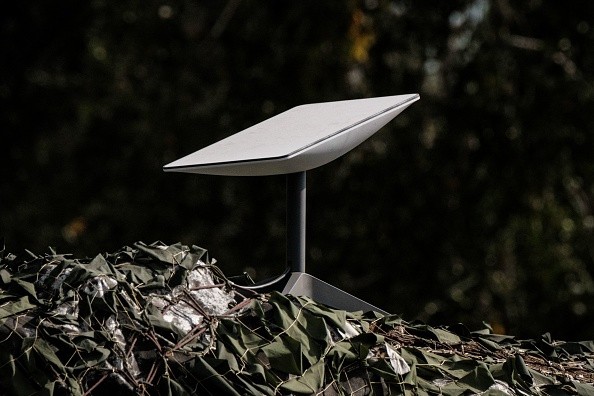Tech Times' Weekly Wrap recaps the biggest headlines out of tech last week. Last week, we saw several technological advances with satellite internet and AI from SpaceX and Starlink to feature the Direct-to-Cell service soon.
There was also the "No Fakes Act" of 2023, which introduced a new bill that would focus on preventing AI from copying the likeness, voice, and other outputs from artists. Two smart billboards in Israel were also briefly hacked last week to show pro-Hamas content.

Starlink's Direct-to-Cell Service Coming in 2024
Elon Musk's SpaceX and Starlink are set to bring their latest development to the world, making its satellite connections, including text, voice, and internet, available to the public without any special hardware.
Starlink's so-called "Direct-to-Cell" program was recently announced on its webpage, confirming the upcoming service that would first arrive in 2024.
The 2024 availability of smartphones connecting directly to the satellites would center on sending and receiving text messages, while the voice and LTE availability would only arrive after a year or in 2025.
It was not revealed if the satellite internet will also provide 5G connections. However, it claimed to have "no dead zones" when accessing this via partner telcos around the world, with the US having T-Mobile as SpaceX's local provider.

No Fakes Act to Protect Artists From AI
AI is known for the ability to create many things out of anything, and it only needs a command from users. With this massive capability of tech, it has been popular among those spreading misinformation via generative AI, particularly with deepfakes.
That is what the No Fakes Act of 2023 aims to change once it gets approved into law. This new bipartisan bill stands for Nurture Originals, Foster Art, and Keep Entertainment Safe Act of 2023, with senators Chris Coons, Marsha Blackburn, Amy Klobuchar, and Thom Tillis sponsoring the bill.
It aims to prevent AIs from creating "digital replicas" of renowned artists, actors, actresses, and famous personalities without their explicit consent or approval from their estate. It would also protect the deceased from getting digitally replicated for up to 70 years after their death.

Israeli Billboards Were Hacked
Hackers have managed to access two smart billboards in Israel that briefly showed pro-Hamas content. Gil Messing of Check Point Software Technologies, a cybersecurity firm in Tel Aviv, told CNBC that the two hijacked smart billboards in or near Tel Aviv showed "anti-Israeli, pro-Hamas footage" for a few minutes on Thursday.
Messing noted that the footage featured "the Israeli flag under fire... footage from Gaza, things like this." According to Eilon Rosman, CEO of CTV Media Israel, the company that owned the two billboards, the hacking incident happened a few minutes after they opened the network.
There is reportedly a rise in hacking activities in Israel, sparked by the war in Gaza, which is governed by the militant group Hamas.
Check Point Security has tracked potential cyberattacks in the country, noting that "more than 40 groups" are now engaged in, or claim to be engaged in cyberattacks, adding that the threats are not unusual.
Over the past week, the cybersecurity firm claimed that there were several defacement of websites and DDoS attacks that took place briefly.
Related Article : AI Researchers Claim Finding Critical Vulnerabilities in Large Language Models Like ChatGPT

ⓒ 2026 TECHTIMES.com All rights reserved. Do not reproduce without permission.




